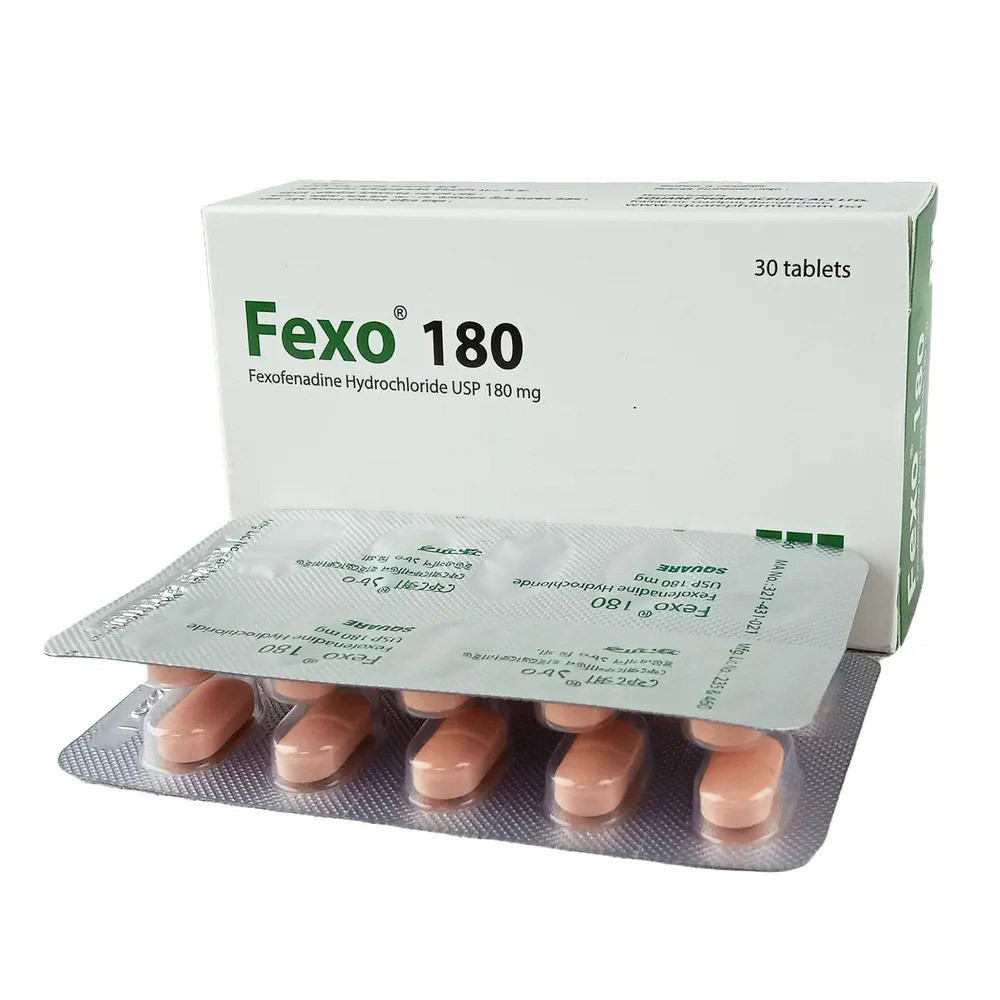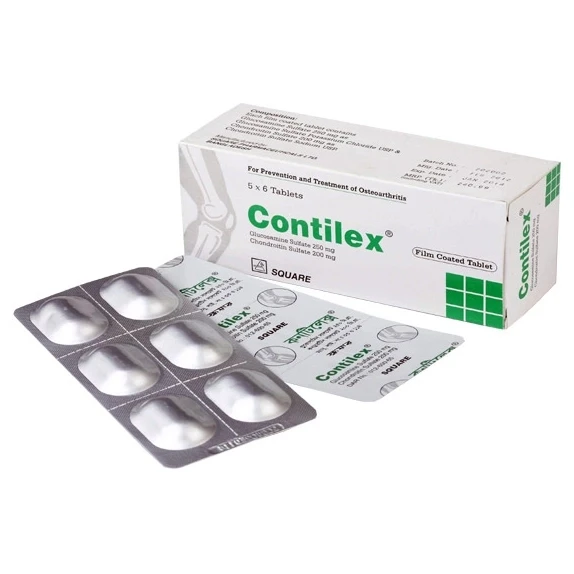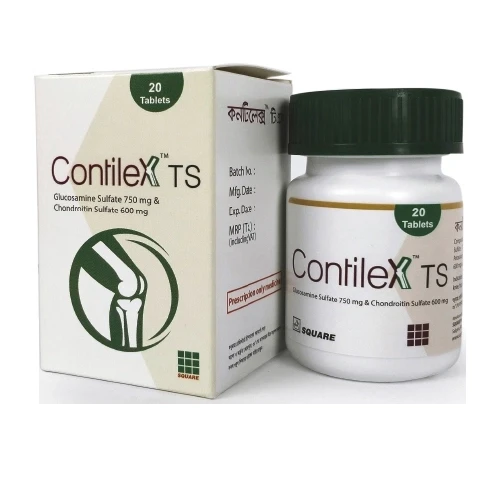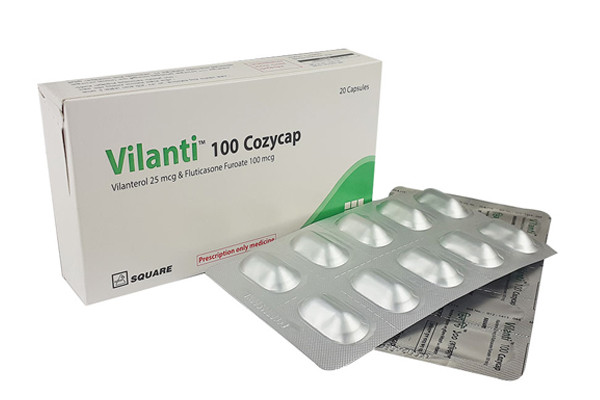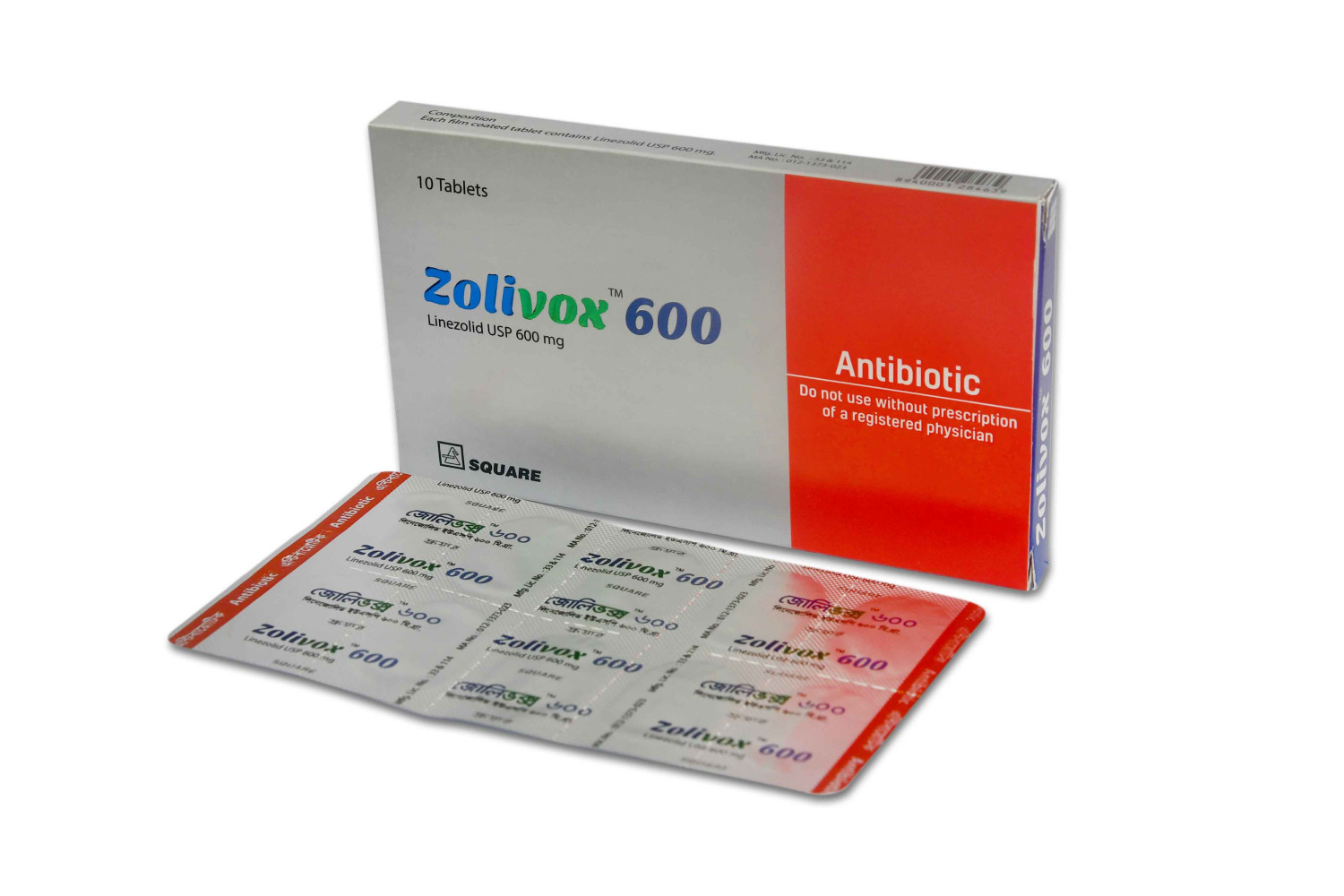

Benzenod Capsule, Rivastigmine Tartrate 3 mg
Inhouse product
-
৳11.40
৳12.00 -
৳42.75
৳45.00 -
৳16.63
৳17.50 -
৳2.14
৳2.25
Reviews & Ratings
Indications
Benzenod capsule is
indicated for the symptomatic treatment of mild to moderately severe
Alzheimer's dementia. Symptomatic treatment of mild to moderately severe
dementia in patients with Idiopathic Parkinson's disease.
* রেজিস্টার্ড চিকিৎসকের পরামর্শ মোতাবেক ঔষধ সেবন করুন'
Pharmacology
Rivastigmine is a
carbamate derivative that is structurally related to physostigmine, but not to
donepezil and tacrine. The precise mechanism of rivastigmine has not been fully
determined, but it is suggested that rivastigmine binds reversibly with and
inactivates chlolinesterase (eg. acetylcholinesterase, butyrylcholinesterase),
preventing the hydrolysis of acetycholine, and thus leading to an increased
concentration of acetylcholine at cholinergic synapses. The anticholinesterase
activity of rivastigmine is relatively specific for brain acetylcholinesterase
and butyrylcholinesterase compared with those in peripheral tissues.
Dosage
Rivastigmine capsule-
- Initial dose: Rivastigmine 1.5 mg twice a day.
- Dose titration: The starting dose is Rivastigmine 1.5 mg twice
a day. If this dose is well tolerated after a minimum of two weeks of
treatment, the dose may be increased to Rivastigmine 3 mg twice a
day. Subsequent increases to 4.5 mg and then 6 mg twice a day should
also be based on good tolerability of the current dose and may be
considered after a minimum of two weeks of treatment at that dose
level.
- Maintenance dose: The effective dose is 3 mg to 6 mg twice a day; to
achieve maximum therapeutic benefit patients should be maintained on their
highest well tolerated dose. The recommended maximum daily dose is 6
mg twice a day. Maintenance treatment can be continued for as long as
a therapeutic benefit for the patient exists.
- Re-initiation of
therapy: If treatment is interrupted
for more than several days, it should be re-initiated at 1.5 mg twice
daily. Dose titration should then be carried out as described above.
Rivastigmine
transdermal patch: Apply patch on intact skin for a 24-hour period; replace
with a new patch every 24 hours.
- Initial Dose: Initiate treatment with 4.6 mg/24 hours Rivastigmine
transdermal patch.
- Dose Titration: After a minimum of 4 weeks, if tolerated, increase
dose to 9.5 mg/24 hours, which is the minimum effective dose. Following a
minimum additional 4 weeks, may increase dosage to maximum dosage of 13.3
mg/24 hours.
- Mild to Moderate
Alzheimer's Disease and Parkinson’s Disease Dementia: Rivastigmine transdermal patch 9.5 mg/24 hours or
13.3 mg/24 hours once daily.
- Severe
Alzheimer’s Disease:
Rivastigmine transdermal patch 13.3 mg/24 hours once daily.
- For treatment interruption longer
than 3 days, retitrate dosage starting at 4.6 mg per 24 hours.
* রেজিস্টার্ড চিকিৎসকের পরামর্শ মোতাবেক ঔষধ সেবন করুন'
Administration
Rivastigmine should be
administered twice a day, with morning and evening meals.
* রেজিস্টার্ড চিকিৎসকের পরামর্শ মোতাবেক ঔষধ সেবন করুন'
Interaction
As a cholinesterase
inhibitor, Benzenod may exaggerate the effects of succinylcholine-type
muscle relaxants during anaesthesia. Caution is recommended when selecting
anaesthetic agents. Possible dose adjustments or temporarily stopping treatment
can be considered if needed. In view of its pharmacodynamic effects,
rivastigmine should not be given concomitantly with other cholinomimetic
substances and might interfere with the activity of
anticholinergic medicinal products. No pharmacokinetic interaction was observed
between rivastigmine and digoxin, warfarin, diazepam or fluoxetine in
studies in healthy volunteers. The increase in prothrombin time induced by
warfarin is not affected by administration of rivastigmine. No untoward
effects on cardiac conduction were observed following concomitant
administration of digoxin and Benzenod.
Contraindications
The use of this
medicinal product is contraindicated in patients with hypersensitivity to the
active substance or other carbamate derivatives.
Side Effects
The most commonly
reported adverse reactions are gastrointestinal, including nausea (38%)
and vomiting (23%), especially during titration. Female patients in
clinical studies were found to be more susceptible than male patients
to gastrointestinal adverse reactions and weight loss.
Pregnancy &
Lactation
For Rivastigmine no
clinical data are available. Rivastigmine should not be used during
pregnancy unless clearly necessary. In animals, rivastigmine is excreted
into milk. It is not known if rivastigmine is excreted into human milk.
Therefore, women on rivastigmine should not breast-feed.
Precautions &
Warnings
Patients with sick
sinus syndrome or conduction defects, resp diseases. Cholinergic stimulation
may increase gastric acid secretion. May exacerbate urinary obstruction and
seizures. Pregnancy. Renal impairment, mild to moderate hepatic impairment.
Monitor body wt. Asthma or obstructive pulmonary disease. May worsen
extrapyramidal symptoms. Lactation.
Use in Special
Populations
Renal and hepatic
impairment: Due to increased
exposure in moderate renal and mild to moderate hepatic impairment, dosing
recommendations to titrate according to individual tolerability should be
closely followed
Use in children: Benzenod is not recommended for use in
children.
Overdose Effects
Most cases of
accidental overdose have not been associated with any clinical signs or symptoms
and almost all of the patients concerned continued rivastigmine treatment.
Where symptoms have occurred, they have included nausea, vomiting and
diarrhoea, hypertension or hallucinations. Due to the known vagotonic effect of
cholinesterase inhibitors on heart rate, bradycardia and/or syncope may also
occur. Ingestion of 46 mg occurred in one case; following conservative
management the patient fully recovered within 24 hours. As rivastigmine has a
plasma half-life of about 1 hour and a duration of acetylcholinesterase
inhibition of about 9 hours, it is recommended that in cases of asymptomatic
overdose no further dose of rivastigmine should be administered for the next 24
hours. In overdose accompanied by severe nausea and vomiting, the use of
antiemetics should be considered. Symptomatic treatment for other adverse
reactions should be given as necessary. In massive overdose, atropine can be
used. An initial dose of 0.03 mg/kg intravenous atropine sulphate is
recommended, with subsequent doses based on clinical response. Use of
scopolamine as an antidote is not recommended.
Therapeutic Class
Drugs for Dementia
Storage Conditions
Store in a cool and dry place, protected from
light.
Frequently Bought Products
Easyhaler Metered-Dose Inhaler (MDI), Inhaler device
Epitra Tablet, Clonazepam 2 mg
Flugal IV Infusion, Fluconazole 200 mg/100 ml
Urolosin Tablet, Tamsulosin Hydrochloride 0.4 mg
Zolivox Tablet, Linezolid 600 mg
Product Queries (0)
Login Or Registerto submit your questions to seller
Other Questions
No none asked to seller yet
-
৳11.40
৳12.00 -
৳42.75
৳45.00 -
৳16.63
৳17.50 -
৳2.14
৳2.25
